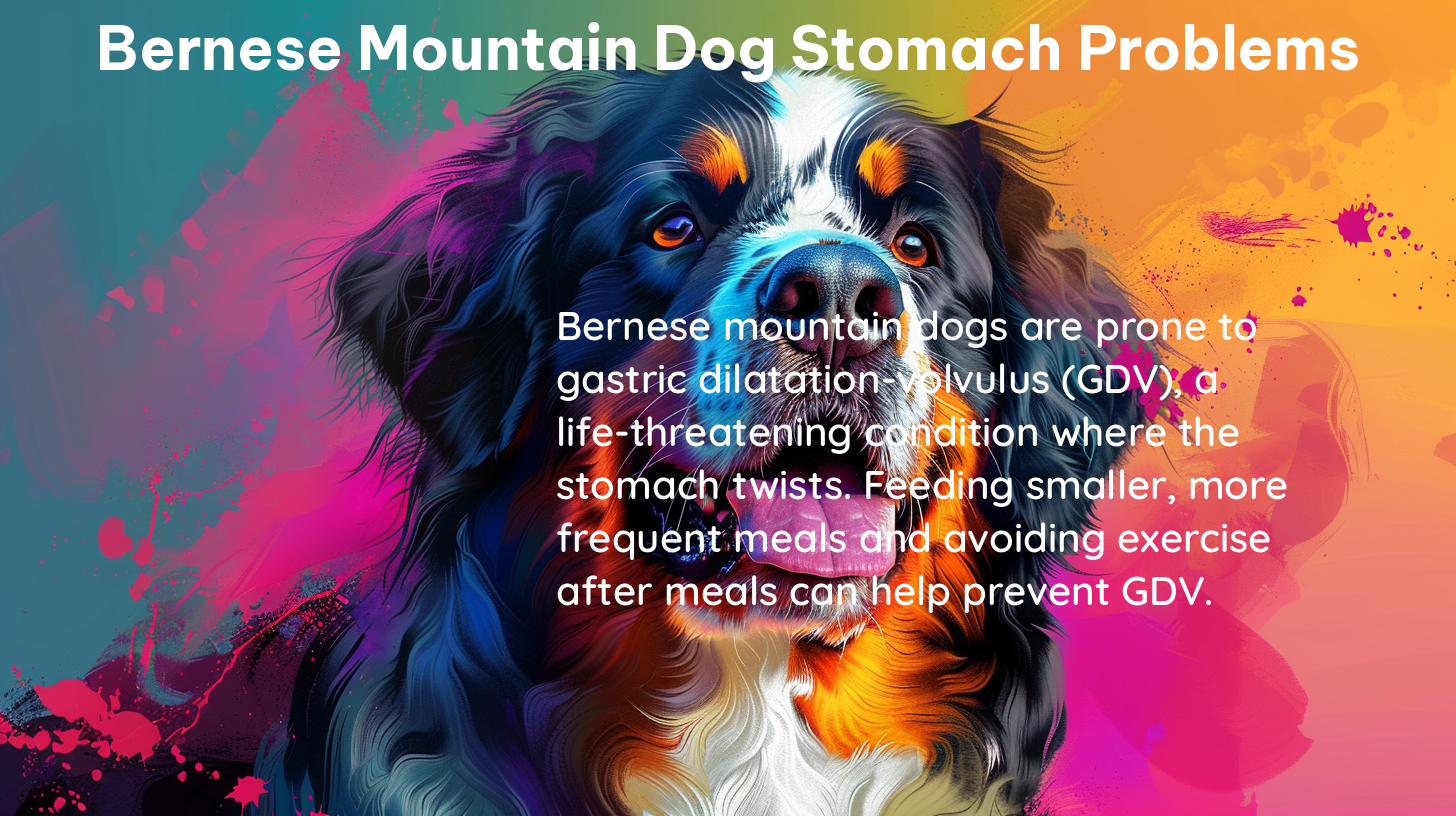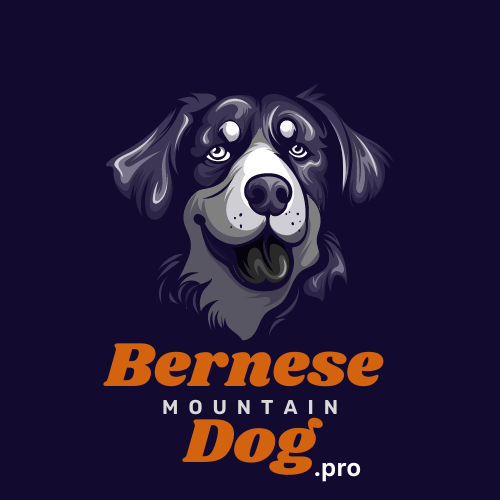Bernese Mountain Dogs are a beloved breed known for their gentle temperament and striking appearance. However, these majestic canines can be prone to various stomach issues that can significantly impact their health and well-being. In this comprehensive blog post, we’ll explore the common stomach problems affecting Bernese Mountain Dogs and discuss dietary changes that can help alleviate these conditions.
Common Stomach Issues in Bernese Mountain Dogs

Bernese Mountain Dogs are susceptible to a range of gastrointestinal problems, including:
1. Gastric Dilatation and Volvulus (GDV)
Gastric Dilatation and Volvulus, also known as “bloat,” is a life-threatening condition that occurs when the stomach fills with gas and twists, blocking blood flow and causing shock. Symptoms of GDV include anxious behavior, abdominal pain, excessive drooling, vomiting, and unproductive dry heaving. Immediate medical intervention is necessary to save the dog’s life.
2. Food Allergies
Bernese Mountain Dogs can develop food sensitivities that can lead to vomiting, diarrhea, and itching. Common allergens include animal proteins like beef, chicken, and dairy products. A balanced diet with high-quality ingredients can help alleviate these issues.
3. Digestive Disorders
Conditions like irritable bowel syndrome (IBS) and pancreatitis can cause vomiting, diarrhea, loss of appetite, and lethargy in Bernese Mountain Dogs. A nutrient-rich diet can help manage these disorders.
4. Inflammatory Bowel Disease
Some Bernese Mountain Dogs may have sensitive digestive systems that require special diets. Hereditary components may contribute to allergies and digestive conditions in this breed.
Dietary Changes to Help Alleviate Stomach Problems

Addressing the dietary needs of Bernese Mountain Dogs with stomach issues can be a game-changer in managing their gastrointestinal health. Here are some effective dietary changes to consider:
1. Bland Diet
Feeding a bland diet of boiled chicken and rice or mashed banana can help soothe the stomach after a fast. Gradually reintroduce regular food to prevent digestive upset.
2. Probiotics
Multi-strain probiotics can help restore healthy gut bacteria, reducing diarrhea and gas. They are also useful during food transitions.
3. Prebiotics
Supplements like canned pumpkin, slippery elm, chia seeds, and plantains can promote the growth of beneficial microorganisms in the intestines, aiding digestion.
4. Digestive Enzymes
Adding digestive enzymes to the diet can help break down nutrients, reducing digestive issues.
5. High-Quality Food
Feeding a balanced, nutrient-rich diet with high-quality ingredients can help prevent digestive problems and support overall health.
Additional Tips
- Consult with a veterinarian before making any significant changes to your Bernese Mountain Dog’s diet.
- Monitor your dog’s health and seek immediate veterinary attention if you notice any signs of stomach problems.
- Regular check-ups and preventative measures like vaccinations and parasite control can help prevent infections and other health issues.
Bernese Mountain Dogs are a beloved breed, but their susceptibility to stomach problems can be a significant concern for their owners. By understanding the common issues and implementing the right dietary changes, you can help your furry friend maintain a healthy and happy gastrointestinal system. Remember to work closely with your veterinarian to ensure your Bernese Mountain Dog receives the best possible care.
References:
- https://spotpet.com/blog/breed-tips/6-common-bernese-mountain-dog-health-problems
- https://www.mypawco.com/stomach-issues-in-bernese-mountain-dogs-pawco-s-solution/
- https://iheartdogs.com/6-remedies-supplements-for-your-bernese-mountains-diarrhea-gas-vomiting-or-upset-stomach/
- https://eastcooperanimalhospital.com/client-resources/breed-info/bernese-mountain-dog/
- https://www.bmdca.org/diseases-and-conditions.

Sarah Johnson
Sarah Johnson is a devoted Bernese Mountain Dog enthusiast and regular contributor to Bernese Mountain Dog Pro. With over a decade of experience in raising and training Berners, Sarah brings practical knowledge and passion to her writing. Sarah lives in Colorado with her two Berners, Max and Bella.